D is for… The Dirty Strangers
Formed around the rolodex address book of West Londoner Alan Clayton, The Dirty Strangers are the biggest underground success you’ve never heard of.
Like one of those Hollywood Supergroups that the likes of Dave Navarro and Billy Duffy always seem to turn up in, for a while in the late eighties TDS might have been very big indeed, releasing a couple of singles, Bathing Belles and Thrill of the Thrill that somehow missed the charts when their contemporaries in the booze-fuelled barroom blitz stakes, The Quireboys, were just starting to make waves commercially. Listening back to the tracks today it’s not hard to see why the Quireboys won that particular battle, but the gritty r n’b and soul authenticity of the ‘Strangers is still there for all to see. Clayton called in the likes of guitaring Rolling Stones Ron Wood and Keith Richards to his recording sessions, and over the years other alumni of Britrock’s Valhalla like Paul Fox (The Ruts), Dave Tregunna (Lords of the New Church, Sham 69), Brian James (The Damned) and long time Blockhead Mickey Gallagher (who also worked extensively with The Clash) have called themselves dirty strangers.
Thankfully, The Dirties are still around – in 2013 they shared the stage with Stones sideman Bobby Keys in his last club gig before he passed away, and they released a new album, Crime and a Woman, late last year. Highly recommended if you like authentic English rock n’roll. – Scott ‘Come on You Rssss!’ Adams
D is also for … Distance
As we quite often say in the alphabetic guide…. Why oh why weren’t this band huge?
‘Band’ in this instance is probably pushing things a bit, as Distance was formed by Chic’s Bernard Edwards with the express intention – and record company backing- of aping the commercial success of Duran Duran offshoot The Power Station. They sadly failed miserably in that quest, but did leave behind one quite superb AOR album by way of a legacy.
Featuring the soon-to-be-Bad-Company vocalist Robert Hart and having a sound somewhere between the afore-mentioned Power Station and UK pop rockers Go West (whose very own Richard Drummie actually co-wrote one of the songs on the album, the excellent Everytime I Stand Up), Distance was seemingly built for success in the sleek, airbrushed world of late eighties pop rock, but were probably just a little bit guilty of falling between too many stools to make a go of things.
The perky, hyperactive Leave it Up to You was teeming with pure Robert Palmer blue-eyed funk intensity, Speech of Angels was right in line with what the likes of the Dan Reed Network and Stevie Salas Colorcode were doing contemporaneously, whilst the big ballad As You Turn Away was at least the equal of Bad English’s When I See You Smile, yet something just failed to click. Certainly the band’s odd mix of faceless session man roboticism and a lack of true pretty-boy marketability harmed the band – to such an extent that even appearing as a bar band in Whoopi Goldberg vehicle Burglar did nothing to raise their profile – but have a listen to the album today and you’ll be bowled over by just how good it was and is. Keyboarder Jeff Bova (Iron Maiden, David Lee Roth and, surprise, surprise… Robert Palmer! amongst others) is excellent throughout whilst the solos of guitarist Eddie Martinez (that man Palmer, Rod Stewart, Meat Loaf) are uniformly electrifying in the technoflash eighties style. And of course the drumming of Tony Thompson is never less than rock solidly stupendous. A great album then, a huge amount of talent concentrated in one place, and a massive case of what if… – Scott Adams
D is also for… Dumpy’s Rusty Nuts
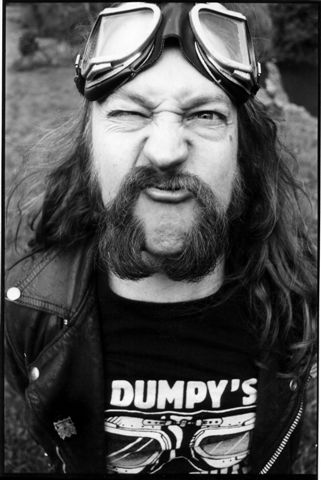
Or Dumpy’s Rusty Bolts, or Dumpy’s Dirt Band… But whatever they were called, all through the eighties Dumpy’s was a watchword for a drunken, fun night out. The epitome of British pub rock, Graham “Dumpy” Dunnell and his legion of blues-based band brothers appealed to the original NWoBHM crowd in the early eighties, alongside similarly pulchritudinous acts like the Handsome Beasts, but when the bluesy charms of original hard rock palled on a younger audience wheened more on Iron Maiden than Status Quo he found a welcoming home in the then stil large biker/rock club circuit around the UK.
A couple of almost-hit singles occurred too, in the shape of infectious biker anthem Box Hill or Bust and the ‘slinky’ Hot Lover, but as the decade made it’s way onwards the height of Dumpy’s success was a perennial slot at the still-metallically dominated Reading Festival.
The man still tours to this day, of course, though the days of recording double live albums like Somewhere in England are long behind him; However there’s always room on the rock circuit for a fine guitarist with a neat line in self-deprecating humour and a saucy buttock-shaped guitar, and it can reasonably be assumed that Dumpy will keep going until he can go no more. Still worth seeing if you get the chance! – Gavin Strickmann


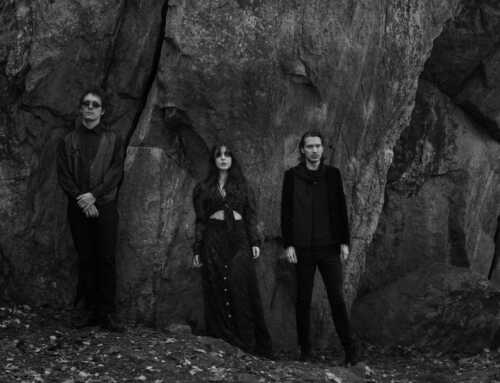
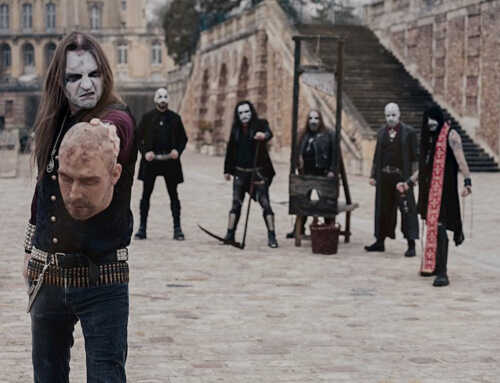
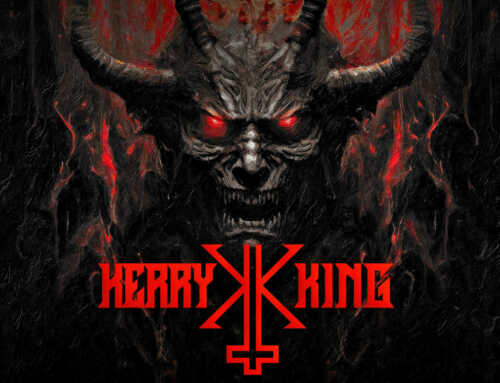
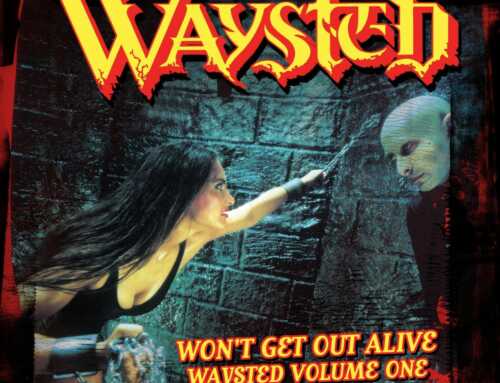
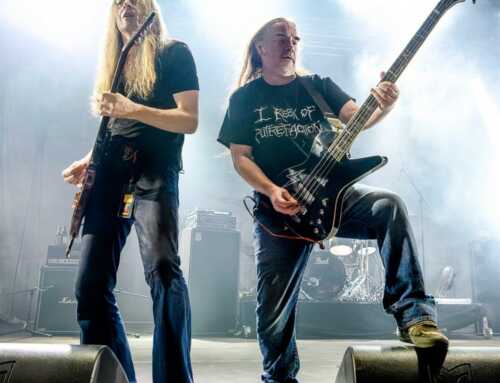
Leave A Comment